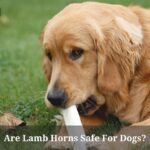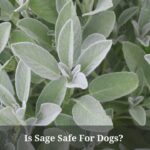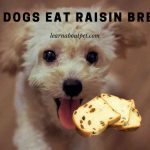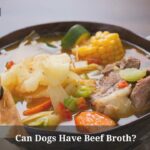Buffalo horns are an increasingly popular treat for dogs. But are they actually safe for the canines? Read on, to find out.
Are buffalo horns safe for dogs? Yes, buffalo horns are generally safe treats for dogs – though the dogs that chew on them run the slight risk of ending up with broken teeth if they chew too hard. The horns are also prone to splintering at times, which can leave dogs that chew on them with cut injuries.
Worth noting right from the outset is the fact that what we are making reference to here are specifically water buffalo horns.
So the whole thing is about the use of water buffalo horns for dogs (as chewing treats).
As such, we could just as well reframe our focus – to be on the question: are water buffalo bones safe for dogs?
Many stores that sell pet foods stock the buffalo horns nowadays. It is upon encountering such horns on sale that many dog owners find themselves wondering whether or not they are safe for dogs.
The vendors of these buffalo horns tend to tout them as very long lasting and enjoyable treats for dogs.
Indeed, when you ask most of these vendors, what is the best long lasting chew for dogs, they will tend to mention buffalo horns.
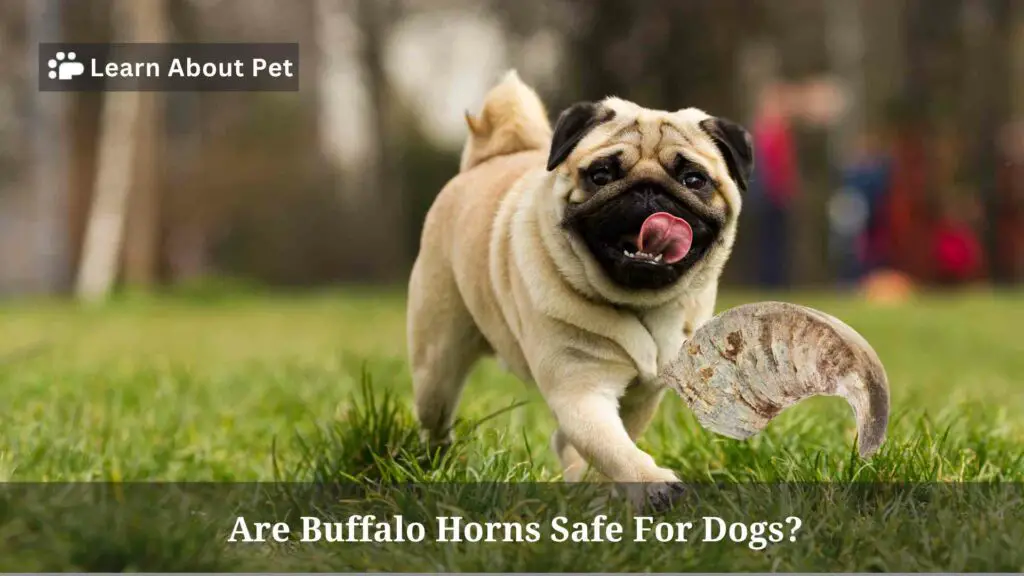
What Are Buffalo Horns?
Buffalo horns are hardy pointed structures that are found on the heads of buffaloes.
On the buffaloes’ bodies, the horns primarily serve as defensive weapons. When a buffalo feels threatened, it is able to gore whatever is threatening it with its horns – thus defending itself.
Therefore once the farmed buffaloes are slaughtered, these bones are extracted, thoroughly cleaned and cut into dog chews.
What Are Buffalo Horns Made Out Of?
Before proceeding to answer the question on whether buffalo horns are safe for dogs, it is important for us to first have insight on what exactly the horns are made out of.
So, indeed, what are buffalo horns made out? The answer is that horns are made of a bony core, above which we find a keratin sheath.
In terms of specific chemical elements, we find the likes of calcium and phosphorus being abundant in the buffalo horns.
The horns are also high in protein, and low in fat.
Is It Ok For Dogs To Chew On Horns?
On another note, before proceeding to find out whether or not buffalo horns are really safe for dogs, we need to find out whether, at a general level, it is OK for dogs to chew on horns.
So, indeed, Is it OK for dogs to chew on horns?
The answer is yes – though there are some caveats. For one, it is worth understanding that the horns tend to be rather hard to chew on, given their bone cores and keratin sheaths.
Therefore when dogs chew on the horns, they always run the risk of breaking their teeth in the process.
Furthermore, the horns are prone to splintering. And should they splinter while being chewed upon by dogs, there is the risk of the dogs sustaining cuts.
All in all, after making allowance for those two facts, we find that horns are generally OK for dogs to chew upon.
Still, it is worth noting that animal horns differ in terms of size, structure and other parameters. That is what necessitates a discussion on what horns are good for dogs.
Are Buffalo Horns Safe For Dogs?
Buffalo horns are generally safe for dogs.
There are many dog owners who give their canines buffalo horns to chew on, and the dogs never seem to sustain any harm as a result of chewing on the horns.
So that leads us to the conclusion that the horns are basically safe for the dogs.
Moreover, when you consider the elements that buffalo horns are made out of, none is known to be bad for dogs.
This is further evidence that the horns are basically safe for dogs.
But notwithstanding their general safety, buffalo horns do come with certain specific risks.
For one, these horns are rather hard. Therefore when dogs chew on them, they run the risk of breaking their teeth.
Moreover, the buffalo horns are known to sometimes splinter. Now when buffalo horns for dogs splinter, the end result can be quite nasty cuts in the mouth.
So whereas we say that buffalo horns are safe for dogs, it is important to beware of those risks. Then it is essential to take measures to mitigate the risks.
For instance, young puppies that still have their deciduous teeth (which are prone to breaking easily) shouldn’t be given buffalo horns to chew upon.
Are Buffalo Horns Safe For Dogs Teeth?
Buffalo dogs are designed to serve as chew treats for dogs. Still, people find themselves wondering, are buffalo horns safe for dogs to chew?
More specifically, are the buffalo horns safe for the dogs’ teeth?
Buffalo horns are safe for dogs’ teeth, though there are cases where some dogs have been known to end up with broken teeth on account of chewing on these horns.
The buffalo horns tend to be too hard for puppies’ deciduous teeth. If such puppies chew on buffalo horns, the deciduous teeth may end up breaking.
Therefore for puppies that are yet to shed their deciduous teeth, buffalo horns would be unsafe.
On a similar note, very old dogs whose teeth have become weak also run the risk of ending up with broken teeth if they chew on buffalo horns.
So for such senior dogs, the horns are considered to be unsafe as well.
Are Buffalo Horns Safe For Dogs To Eat?
Buffalo horns are generally safe for dogs to eat.
The chemical elements that the buffalo horns are made out of tend to be safe (and one would even say beneficial) for dogs.
Additionally, their basic structure makes water buffalo horns for dogs digestible.
Moreover, the horns have lots of protein and very little fat in them.
All these facts ultimately mean that the buffalo horns are safe for dogs to eat.
Indeed, dogs seem to enjoy eating the buffalo horns (which are also known as bison horns) a great deal.
Indeed, that is why many people find themselves trying to figure out, why do dogs like bison horns so much? So these are edible and enjoyable treats for dogs.
However, the dogs do need supervision while eating buffalo horns.
That is because there are risks such as those of the dogs chewing too hard and ending up with broken teeth, or the horns splintering and injuring the dogs’ mouths.
Are Buffalo Horns Safe For Dogs To Swallow?
Small, properly chewed bits of buffalo horns are safe for dogs to swallow. However, big splinters of buffalo horn would be unsafe for dogs to swallow.
This is what necessitates supervising the dog while it is chewing on buffalo horns.
It is also on account of those facts that the buffalo horn treat should be taken away from the dog once the dog has chewed on it for some time.
Are Buffalo Horns Safe For All Dogs?
Depending on their ages, dogs can either be referred to as puppies or as adult dogs.
Now the question we face is on whether buffalo horns are safe for all dogs.
Are Buffalo Horns Safe For Puppies?
Some of the people who consider giving buffalo horns to their dogs turn out to be folks whose dogs are still puppies.
So, can puppies chew on buffalo horn? The true position is that it would be inadvisable to give buffalo horn chews to puppies, especially young ones that still have their deciduous teeth.
The reason why such puppies shouldn’t chew on buffalo horn is in the fact that it is too hard for them.
Therefore when the puppies chew on it (buffalo horn), they run the risk of breaking their teeth, which can be rather painful.
Generally, not giving young puppies hard chews (like buffalo horn) is one of the key principles when it comes to the the do’s and don’ts of bones and hard chews for dogs.
This then leads us to an interesting question: what age can dogs have buffalo horns? And the answer is after they are at least 9 months old.
That is because at 9 months is when most dogs have shed all their deciduous teeth and developed the stronger adult teeth.
Are Buffalo Horns Safe For Adult Dogs?
Buffalo horns are generally safe for adult dogs.
That is with the exception of very old dogs, whose teeth may have become weak, and which therefore may break when subjected to the task of chewing on something as tough as buffalo horn.
What Are The Alternatives To Buffalo Horns For Dogs?
Given what we have said about buffalo horns for dogs, there are those who may want to know whether there are other good alternatives to them.
As it turns out, among the alternatives to buffalo horns for dogs are bully sticks, Himalayan chews as well as the softer cow horns and lamb horns.
How Often Should Dogs Have Buffalo Horns?
It is best to give your dog a buffalo horn twice or thrice per week. Chewing on the horns that frequently would also help the dog in removing plaque and tartar from the teeth.
Here, one may also ask, how long can a dog chew on a horn? And that should be for 10-15 minutes, after which the buffalo horn should be taken away.
Final Verdict
Buffalo horns are fundamentally safe for dogs.
Many people do give their dogs buffalo horns as chew treats, with no negative consequences. So this means that the horns are generally safe for dogs.
Moreover, none of the substances buffalo horns are made out of is harmful to dogs. Again this means that the horns are generally OK for dogs.
Nonetheless, one needs to beware of the fact that buffalo horns are quite tough. So there is a slight risk of a dog’s teeth breaking as it chews them.
On another note, it is important to beware that buffalo horns are sometimes prone to splintering. When the horn splinters, it can hurt the dog’s mouth.
Consequently, puppies that still have deciduous teeth and very old dogs whose teeth have become weak over time shouldn’t be given buffalo horns.
All in all, save for the remote teeth fracture and splintering risks, buffalo horns are otherwise generally safe for dogs.

Welcome to Learn About Pet. My name is Rajkumar Ravichandran and I love all pets, travel, and amazing food. I write about my passion and personal experience caring for multiple pets in this blog! ❤️
Post Disclaimer
DISCLAIMER: THIS BLOG OR WEBSITE, "Learn About Pet", DOES NOT PROVIDE YOU WITH MEDICAL ADVICE AND IS NOT A SUBSTITUTE FOR MEDICAL ADVICE. ALWAYS GET IN TOUCH WITH YOUR PERSONAL VETERINARIAN AND USE INFORMATION HERE AS GENERAL ADVICE.
The information, including but not limited to, text, graphics, images and other material contained on this website are for informational purposes only. No material on this site is intended to be a substitute for professional veterinary advice, food recommendation, diagnosis, or treatment. Always seek the advice of your veterinarian or other qualified health care provider with any questions you may have regarding a medical condition or for pet food related questions.
